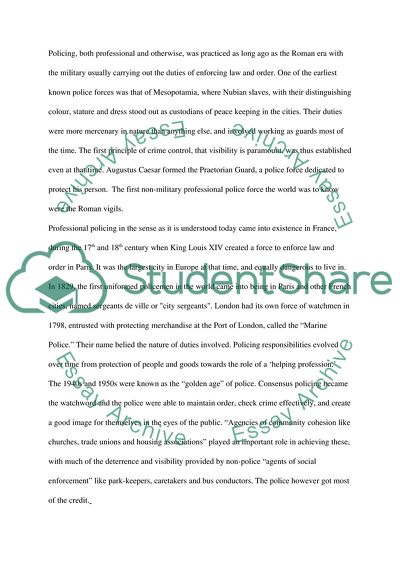Cite this document
(Perspectives on Police Coursework Example | Topics and Well Written Essays - 2000 words, n.d.)
Perspectives on Police Coursework Example | Topics and Well Written Essays - 2000 words. Retrieved from https://studentshare.org/law/1706586-perspective-on-policing
Perspectives on Police Coursework Example | Topics and Well Written Essays - 2000 words. Retrieved from https://studentshare.org/law/1706586-perspective-on-policing
(Perspectives on Police Coursework Example | Topics and Well Written Essays - 2000 Words)
Perspectives on Police Coursework Example | Topics and Well Written Essays - 2000 Words. https://studentshare.org/law/1706586-perspective-on-policing.
Perspectives on Police Coursework Example | Topics and Well Written Essays - 2000 Words. https://studentshare.org/law/1706586-perspective-on-policing.
“Perspectives on Police Coursework Example | Topics and Well Written Essays - 2000 Words”. https://studentshare.org/law/1706586-perspective-on-policing.


